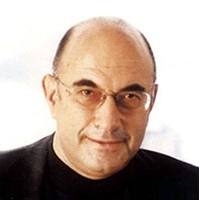
Elkhonon Goldberg, Ph.D., ABPP
Elkhonon Goldberg, Ph.D., ABPP. Dr. Goldberg is a cognitive neuroscientist, a practicing neuropsychologist, and an educator who lectures worldwide. He is a Clinical Professor, Department of Neurology, NYU School of Medicine and a Diplomate of The American Board of Professional Psychology in Clinical Neuropsychology.
Dr. Goldberg authored research papers on cortical organization, hemispheric specialization, frontal lobes, memory, traumatic brain injury, dementias, schizophrenia, and other topics. Goldberg’s books The Executive Brain (2001), The Wisdom Paradox (2005), and The New Executive Brain (2009) have been translated into 16 languages. He coauthored The SharpBrains Guide to Cognitive Fitness (2013) and is the Chief Scientific Adviser of www.sharpbrains.com. Goldberg is a recipient of The Copernicus Prize for “contributions to interdisciplinary dialogue between neurosciences and neuropsychology,” and The Tempos Hominis medal “for international medical sciences education.” He is a foreign member of The Venetian Institute of Science, Literature and Arts. Elkhonon Goldberg was a close associate of Alexander Luria.
For more information please visit
http://lninstitute.org/